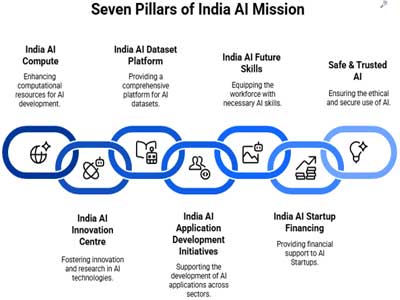This is particularly worrisome, as the country has the highest world-over youth population (over 356 million individuals in the age group of 10-24 years), who run a grave risk of contracting STDs. In fact, the study estimated that one out of every three individuals (31 per cent), suffering from AIDS in India - is an adolescent.
The study was conducted amongst 21467 individuals, half of them from the top ten cities as and the other half belonging to small towns of the country. The main objective was to determine indicators and drivers of sexuality and STDs amongst urban young adults; the first and most crucial step in resolving the age-old taboo around them.
The study clarified that individuals are increasingly exposed to sexual experiences at an early age. In the ages 10-24, over 6.5 per cent boys and over 1.3 per cent girls reported to have had intercourse at least once. It was also found that the average age of such sexual contact was low at 13.72 years for girls and 14.09 years for boys. The average age for first intercourse was 15.25 years for boys and 16.66 years for girls.
“People are becoming sexually active at a younger age. In the earlier days, the age at which people got married was 14-15 or at the most 18-19 years. At that time, there was nothing to stimulate their sexual desires; no television or internet. However now, the average marrying age is higher – maybe around 30 years. Therefore, people indulge in sex at an earlier age, to experiment. Also, at the age of 13-15 years release of sexual hormones such as Testosterone develops attraction amongst individuals for the opposite sex,” says Dr. Paras Shah, Sexologist & a Panel Specialist on MediAngels.com.
Experts at panel opine that it is time India opens up and reaches out for expert opinion on reproductive well-being. “Reproductive health is unnecessarily made a matter of embarrassment or shame, for a person to disclose a condition or willingly seek medical help,” says Dr. Debraj Shome, Facial Plastic Surgeon. “Since those seeking opinion are so few, even doctors don’t find a profession in sexology very enticing. Isn’t it strange that in a country that is 1.2 billion strong, and has over 7 lakh qualified doctors – there are less than 1000 sexology experts?” he questions.
The case is worse with youngsters. They hardly approach qualified doctors for help in cases of reproductive wellness, easily assuming that the internet offers good enough information. Over 74.9 per cent respondents admitted that they derived their knowledge from friends, while only about 4.15 per cent of them spoke to their doctors about it. This clearly indicates how sex is often perceived as an activity of excitement and thrill, but sexual health is never a distinct priority.
According to a global WHO finding, over 2.5 million adolescents undergo unsafe abortion procedures, and face the hazard of complication. Even if they escape immediate crises, they face severe, lasting hormonal and gynecological complications. Adolescents also have a 50 per cent higher risk of stillbirths, in comparison to those between the ages 20 and 29 years. Dr. Uma Vaidyanathan, a Gynecologist & Obstetrician, says, “Underage pregnancies are very prevalent these days. Every single day I get to see such patients in my practice. It is extremely unsafe & dangerous. Lot of easy exposure to internet, pornographic websites has led to teenagers indulging in unsafe sex. Also, lack of sexual awareness is contributing to it.
Questioning why, it is that individuals do not approach doctors for sexual health threw light on some interesting points. 51 per cent respondents strongly felt that their doctors and other medical staff would be judgmental or hostile about such an enquiry. 22 per cent presumed that medical procedures weren’t safe, while another 15 per cent had concerns over privacy and confidentiality.
Dr. Sandip Deshpande, Sexologist, says, “In the domain of sexual education & health, it is not just sex education; the real key is relationship & sex education. It is important to emphasize on the preventive aspects of sexual awareness that includes relationship & sexual education. As a sexual counselor, I come across teenage pregnancy cases, as my gynecologist friends refer them to me. Teenage pregnancy has a lot of psychological implications on both parents & children. These psychological implications are the most critical part to deal with. I really feel that more of sexual awareness should be created so that such cases can be avoided.”


















Related Items
Indian electronics production soars 6-fold over the decade
Indian scientists develop flexible, safe, and eco-friendly battery
Indian matrimony, A sacred bond or an entertaining reality show!